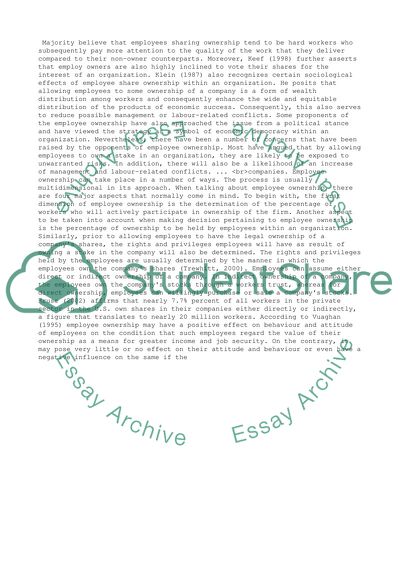Cite this document
(“Employee Ownership and Effect on Attitude Essay”, n.d.)
Employee Ownership and Effect on Attitude Essay. Retrieved from https://studentshare.org/management/1447804-what-are-the-effects-of-employee-share-ownership
Employee Ownership and Effect on Attitude Essay. Retrieved from https://studentshare.org/management/1447804-what-are-the-effects-of-employee-share-ownership
(Employee Ownership and Effect on Attitude Essay)
Employee Ownership and Effect on Attitude Essay. https://studentshare.org/management/1447804-what-are-the-effects-of-employee-share-ownership.
Employee Ownership and Effect on Attitude Essay. https://studentshare.org/management/1447804-what-are-the-effects-of-employee-share-ownership.
“Employee Ownership and Effect on Attitude Essay”, n.d. https://studentshare.org/management/1447804-what-are-the-effects-of-employee-share-ownership.


